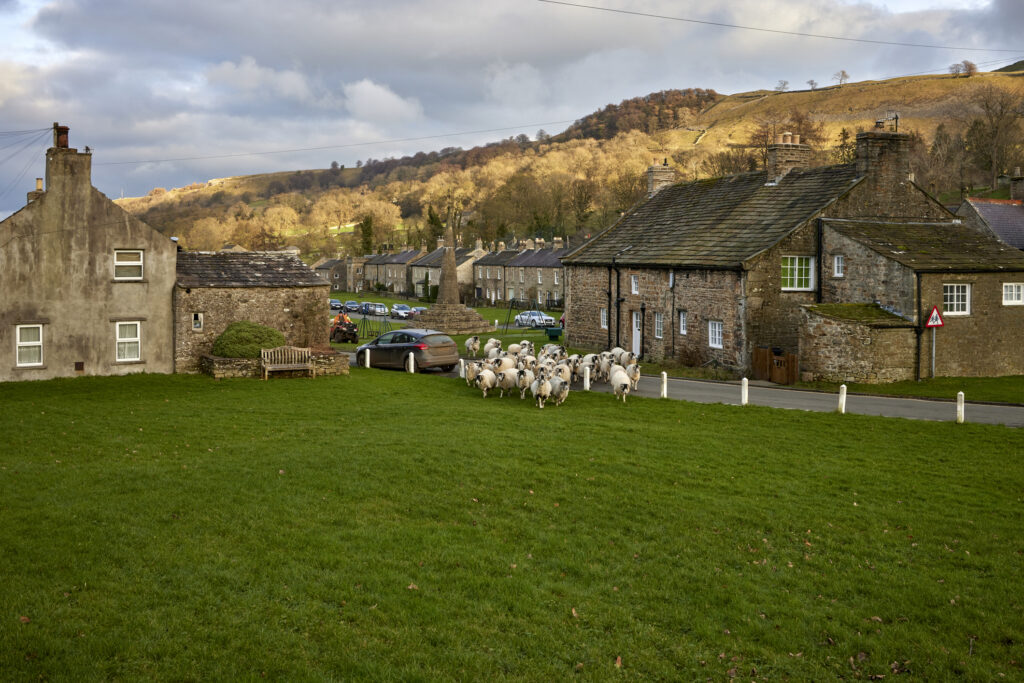
A Chair’s perspective: Growing a society with loan finance
Tamworth Cornerstone Housing Association (TCHA) has been supporting homeless young people for 30 years.
Frank Joyce, Chair of Tamworth Cornerstone, explains how the society has used loan finance from Charity Bank to considerably expand its offering and generate a more reliable income stream.
Is there a particular need for homeless support services for young people in your area?
The fact we’ve been full for more than 30 years would certainly suggest there is! There’s never a shortage of demand. There’s been a steady increase in need over the years, which we’ve responded to. We had six bedsits when we started; now we have 37 units, largely one bedroomed flats.
Can you explain the purpose of each of your Charity Bank loans?
Previously, societies like ours often had to partner with larger organisations to apply for grant aid. Ten years or so ago, the law changed and it meant we could become a Registered Social Provider in our own right. We then bought out the existing mortgages from Midland Heart Housing Association. To do this, we needed a loan, so we applied for a Charity Bank loan for around half a million pounds. Since then, we’ve taken out two more to help buy and refurbish other properties.
We’re now planning to build 12 one-bedroom flats. We hope to start construction in 2020 and finish in the spring of 2021. Around half of the cost will be covered by a Charity Bank loan.
Has owning property helped to strengthen TCHA?
Yes. We’ve moved slowly and cautiously to a size that’s viable. We have a medium-term development plan covering the number of units we want to create, the income we need and so on.
Like a lot of housing associations, we were knocked off course by the elimination of the Supporting People grant. We were getting £200,000 a year from Staffordshire County Council. They had to reduce that by half one year, and then another half the following year, so we had to work really hard to reduce our costs. The fact we were in charge of our own destiny meant we could negotiate with staff and decide how to keep going. Some organisations had to pull out of supported accommodation altogether.
Our new development of one-bedroom flats will give us another self-sustaining income, so we can rely even less on outside funding.
How did the trustees weigh up the risks and benefits of taking out a loan?
Well, we were already paying everything associated with a loan, just through a third party, so there was no real change. We were used to budgeting for those monthly costs, so we knew we could meet the repayments.
Why have you returned to Charity Bank for subsequent loans?
Once a bank knows who you are, it makes getting a second or third loan so much easier. For one thing, Charity Bank knows that we’ll keep up our repayments. Plus, we’re supporters of what Charity Bank is doing – it’s a good, positive social organisation.
We’ve had the same Relationship Manager, Peter Hughes, all the way through. We like having that continuity, as we’ve got to know each other well. He’s always very helpful if we’re struggling.
How have you found the process of applying for the loans?
Not terribly difficult; it’s a straightforward enough process. There’s lots of paperwork, but contracts for grant applications have got longer and longer so we’re used to all the bumf! I’m guessing the process could be quite daunting for new borrowers, but it’s worth pursuing.
What are the main challenges of the process do you think?
It’s often a bit of a rush to get the quarterly management accounts off, as any queries can cause delays. Fees for delays in drawdown can be tricky too, although that hasn’t really affected us.
What would you say to housing providers who think loan finance is too risky?
You can’t rely on grants; they’re so hit and miss, and it’s impossible to anticipate government policy when it comes to rent, and you just can’t rely on outside funding.
What advice would you have for other societies who are thinking of taking out a loan?
Make sure you’re reasonably sure of your income. Rent is our main income stream. If you don’t have something like that, then repaying a loan can be a struggle as you always need to raise money.
What are you most proud of when you speak to your service users, and reflect on how far Tamworth Cornerstone has come?
One young man is particularly imprinted on my memory. He came with nothing, not even a plastic bag. When the staff did a room check, they found little parcels of food hidden around the room – he’d come from a background where he was starving.
Many of the people we’ve supported have gone on to do really well, worked their way up and achieved good jobs. Two of our current tenants are off to uni soon. So I’m most proud of the effect we have on people’s lives.
Read our case study on Tamworth Cornerstone Housing Association
About Charity Bank
Charity Bank is the loans and savings bank owned by and committed to supporting the social sector. Since 2002, we have used our savers’ money to make more than 1380 loans totalling over £580m to housing, education, social care, community and other social purpose organisations.
Nothing in this article constitutes an invitation to engage in investment activity nor is it advice or a recommendation and professional advice should be taken before any course of action is pursued.


